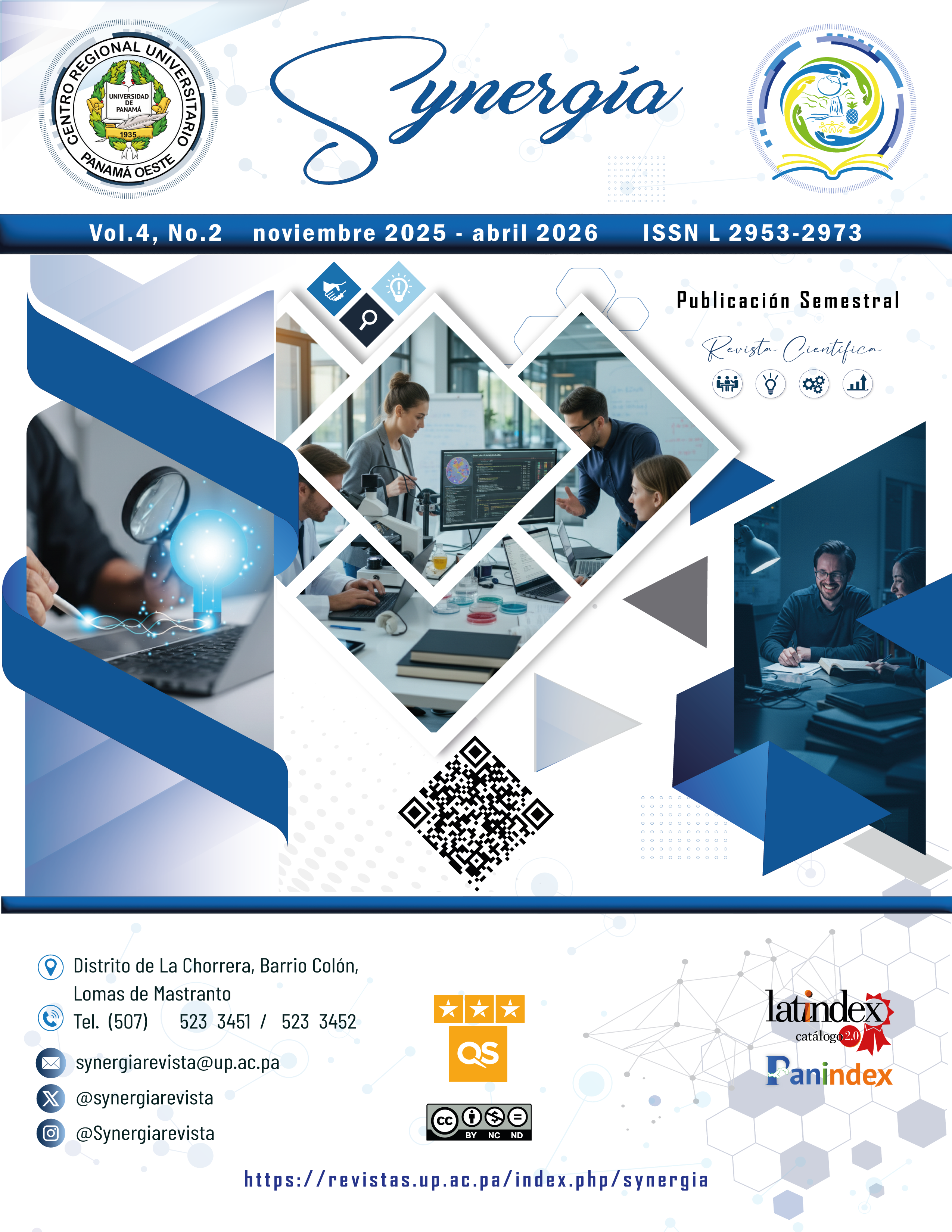

Copyright (c) 2025 Synergía

This work is licensed under a Creative Commons Attribution-NonCommercial-ShareAlike 4.0 International License.
The development of critical, creative, and autonomous thinking is an essential competency in higher education, as it enables students to confront complex situations, solve problems, and make informed decisions. The present study aimed to analyze the pedagogical strategies used by university faculty to foster the development of critical thinking and assess their impact on student learning. A quantitative approach was adopted, with a non-experimental, descriptive, and cross-sectional design. The sample consisted of 40 faculty members and 50 students from the Faculty of Education Sciences of the San Miguelito Regional University Center (CRUSAM). Data collection involved two structured questionnaires distributed via Google Forms and validated by expert judgment. The results, analyzed using descriptive statistics, reveal that the strategies most frequently employed by faculty are reflective questioning, problem-solving, collaborative work, and discussion of complex topics. From the students' perspective, these strategies contribute to strengthening skills such as critical thinking, decision-making, and creativity. However, teachers identify challenges to their implementation, such as time constraints, work overload, and a lack of methodological training. In conclusion, these strategies not only positively impact academic performance but also promote comprehensive training consistent with the objectives of contemporary university education.